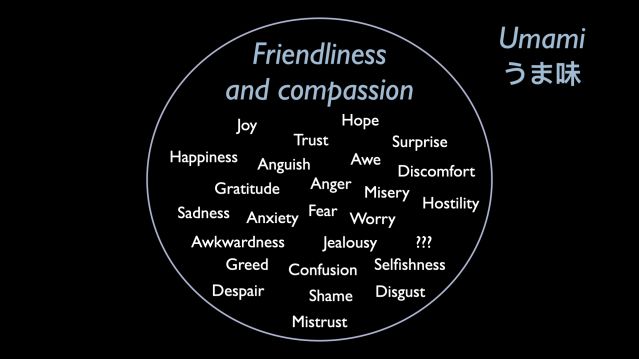Relationships
Love Your Enemies? These 7 Tips Could Help
Choosing love over hate can be difficult, but it is a pathway for healing.
Updated February 15, 2024 Reviewed by Kaja Perina

What to do when “enemies” and hatred make a beeline to our own nervous systems, online and in real life? How do we stabilize our nervous systems, continue to build relationships and allyship, and keep growing? Love, compassion, and nurture are the foundations of survival - hatred and antagonism lead us towards violence. But as humans, we juggle love, hate, fear, insecurity, and vulnerability. What are we to do in the "crucible" of our consciousness?
“Love your enemies” is a powerful spiritual, moral, and psychological injunction to advance our better angels. Jesus implored listeners to do so in the Sermon on the Mount. Buddha said "hatred never ceases by hatred. By love alone does hatred cease. That is the eternal law." Gandhi and Dr. Martin Luther King, jr. agreed that love was the heart of soul-force, or satyagraha, which helped transform British colonialism in India and Jim Crow racism in America.
But as a psychiatrist and human, I know that inspiration and injunction aren’t enough. We need perspiration and pathways to work with hatred and facing “enemies” in our relational and cultural worlds. By increasing our capacity to love, we can decrease the potential virality of hatred, enemies, and enemy-making. Here are a few places to start.
Remember that "enemies" are human too
When we are faced with antagonism, it's possible to lose sight that those who oppose us are human too. It may help to think of them more as ideological "alternatives" rather than "opponents." It may also be helpful and humbling to remember that even the most inhuman ideas and actions are human too. We are our influences. Unless we really cultivate our core sense of self grounded in shared humanity and compassion, it's possible for demagogues and disinformation to turn us into tools for their wiles, and pitch us into battle against one another.
I like Shantideva's words in "The Way of the Bodhisattva":
"Therefore, just like treasure appearing in my house
Without any effort on my part to obtain it,
I should be happy to have an enemy
For he assists me in my conduct of Awakening."
"Awakening" is a synonym for "enlightenment," or being free from the ignorance of selfishness, greed, and hatred. Here, Shantideva reminds us that an enemy can be a teacher and stimulus for our own growth and understanding of the human condition. Compassion for our "enemies" can remind us they are "just like me" in some way - and allow us to see how they are responding to their perceived vulnerability (for example, see my article "Compassion for Trump?" in references.)
Mindfulness
Mindfulness is “awareness of present experience with acceptance.” The first step is to notice, label, and identify the difficult emotions stirred by whatever or whomever we might label an “enemy.” Such labeling and mindfulness tune down the amygdala (responsible for fight-flight-freeze) and the default mode network of the brain (which scans for problems in the past and future and creates a narrative sense of self).
Paying attention and noting what is happening inside your heart and mind gives you a foundation, and allows you to have a dialogue with threatening narratives. By cultivating an experience of yourself grounded in your body and the present moment, you can better take care of challenging emotions instead of leaping to narratives, judgments and criticisms of self and other.
For example, instead of becoming an antagonist in the storyline of an “enemy,” you could take a deep breath, name the emotions being stirred in you, and have more space to choose a response that recognizes the humanity, human needs, and suffering of those who threaten you. When someone tries to make you a “fight buddy,” you could bring attention to that process, rather than being drawn into becoming their sparring partner.
Loving-kindness practice
When enemies shower us with hatred and antagonism, we can feel eroded and threatened. Loving-kindness practice helps us soothe our nervous system and improves our sense of well-being. Loving-kindness also downregulates the default mode network. The practice consists of repeating phrases such as these for several minutes:
“May I be filled with loving-kindness, may I be well; may I be peaceful and at ease, may I be happy.”
You could imagine a benevolent or spiritual figure directing these phrases toward you. Silently directing these phrases toward a stranger actually helps us feel better as well. This all helps us detoxify, deconstruct, and deactivate hatred as it lands on us. This practice is part of cultivating a healthy sense of self to cope with trauma and life.
Keep enemies, hatred, and suffering in perspective
Love and hate, likes and dislikes, and fear, insecurity, uncertainty, and feelings of threat are common to our human psychology. Enemies abound, particularly for those who are vulnerable. But our brains were built for survival, not happiness, so often they collect negative information and dangers, and give them disproportionate weight.
It takes work to keep things in perspective, and not succumb to catastrophic or engulfing emotional narratives. This work doesn’t make the threats “go away,” but it allows us to bounce back and keep going as we find ways to deal with challenging situations and “enemies.”
As we face threats, we can savor what is good and sustaining in the moment. We can cultivate gratitude. This keeps us grounded in times of peril. For example, don’t just allow your enemies to live rent-free in your mind. Remember friends, benefactors, loved ones, and neutral people, as well, and all the good they’ve provided.

Cultivate the “umami” of loving-kindness, friendliness, and compassion
King wrote in Strength to Love, “Hate scars the soul and distorts the personality.” We have to work with our psychic contents, and not mirror our enemies. When one is distressed, adding a dash of the extra “flavor” of loving-kindness, friendliness, and compassion to our inner lives (perhaps with meditation) makes our inner lives and relationships more tasty and delicious. We suffer less, and our “enemies” lose their potency.
This umami and self-care might help us take a social media break, not engage with a provocateur, or find a way of interacting that promotes a sense of shared humanity and love. Sometimes, “clapping back” is necessary, but it usually leaves an aftertaste that needs our umami. Audre Lorde wrote, “Caring for myself is not self-indulgence, it is self-preservation and that is an act of political warfare.”
Cultivate humor
Sometimes, laughter is the best medicine when faced with “enemies.” Humor validates our identities when “enemies” invalidate us, and validates reality when they spread disinformation and lies. Humor can draw attention to the absurdity of the situation that “enemies” create. Humor can knock grandiosity down to size. But enemies can use their brand of humor to “punch down” at vulnerable people. It’s fair to be curious about what kind of humor we lean into. Rod Martin’s Humor Styles Questionnaire can help you see if your humor is more constructive or destructive.
Build communities that share distress
We all depend on co-regulation—regulating our emotions together in companionship and community. Holocaust research found that the pair bond was the unit of survival in dire circumstances. Therefore, enemies who try to divide us are issuing a survival threat. We need to be togethered, not othered, for survival. It’s easier to love when we ourselves feel loved and supported. (See my article and podcast on building communities that share and heal distress.)
Loving our enemies is a way of restoring our own humanity when “enemies” have dehumanized, distorted, and oppressed us, and also remembering that our “enemies” are human, too. King wrote of love requiring us to forgive our enemies, while not letting them off the hook. Forgiving means letting go of our own grudges, resentment, and bitterness, while we continue to pursue accountability and justice.
We also need to forgive ourselves for being human. Love, especially the boundless love Jesus, King, and the Buddha spoke of, is always a work in progress, and we are continually learning from each other, and our “enemies.”
I can only hope that our “enemies” can learn and grow, as well, and remember that those they have hated are human, too, and we are all connected. I hope we can all choose to disempower hatred, fear, and suffering in our politics, culture, society, and minds, and instead empower love, compassion, reason, and shared humanity.
Versions of this article were originally published at East Wind eZine and The Greater Good Science Center.
(c) 2024 Ravi Chandra, M.D., D.F.A.P.A.
References
Christ J. Sermon on the Mount. Bible Gateway.
Buddha SG. Quoted by Maitreya A (translator), Hanh TN. The Dhammapada. Parallax Press, 2001.
King ML. Strength To Love. Fortress Press Gift Edition, 2010
Tusa S. Opening Your Heart: Meditation Month 2024. Tricycle: The Buddhist Review (for meditations on cultivating equanimity, lovingkindness, compassion, and sympathetic joy)
Chandra R. Compassion for Trump?. Psychology Today, February 6, 2017
Chandra R. Creating Transitional Spaces for Intergenerational Trauma. Psychology Today, October 26, 2023
Chandra R. Facebuddha: Transcendence in the Age of Social Networks. Pacific Heart Books, 2017
Chandra R. Self Care for Activists. Psychology Today, August 17, 2016.
Chandra R. Cultivating Sense of Self to Cope With Trauma and Life. Psychology Today, October 3, 2023.
Chandra R. What Do We Feel When We Feel Close? The Dim Sum Dialogues. Psychology Today, September 19, 2023
Chandra R. MOSF 16.9: An Ugly Truth: Social Media, the American Psyche, and Preventing Civil War East Wind eZine, November 21, 2021
Chandra R. MOSF 17.12: America, Under the Spells of Contempt and Idealization. East Wind eZine, October 7, 2022
Chandra R. Getting out of the Anxiety Trap: Make it RAIN! Psychology Today, January 31, 2012
Chandra R. 12 Tools to Help Cope With Catastrophic Anxiety and Worry. Psychology Today, February 12, 2023
Chandra R. Compassion in Difficult Times. SF Love Dojo YouTube Channel, September 16, 2019
Iyer D. Social Change Ecosystem Map. 2022.
Chandra R. MOSF 18.12: Election Season 2024: Deconstructing the Trump/Far-Right Playbook and Propaganda, and Constructing a Positive Response From Our Shared Humanity and Reality – East Wind ezine, December 1, 2023
Bornstein MH, Esposito G. Coregulation: A Multilevel Approach via Biology and Behavior. Children (Basel). 2023 Jul 31;10(8):1323. doi: 10.3390/children10081323. PMID: 37628322; PMCID: PMC10453544
Herman J. Trauma and Recovery. 2015 (revised), Basic Books.




